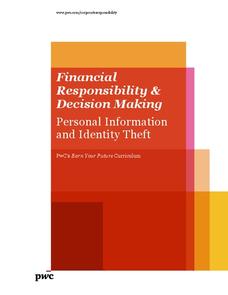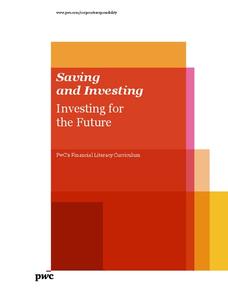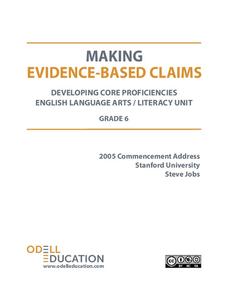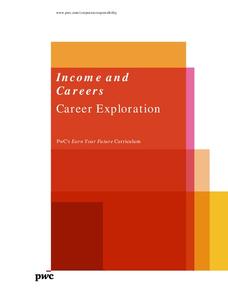DiscoverE
LIDAR: Mapping with Lasers
We would be lost without maps! How are they made? Introduce junior topographers to LIDAR technology with a fascinating activity. Set up a mock city, then have learners operate a laser measure to determine the shape of the landscape using...
Concord Consortium
Charge Intensity and Electric Force
Looking for a quick way to supercharge your electricity and magnetism unit? Assign a very responsive interactive designed to illustrate the relationship between charge, electric field, and the resulting forces. Learners experiment with...
Concord Consortium
Atom and Ion Builder
Explore and control the building blocks of atoms! Physical science superstars add and remove subatomic particles to create atoms and ions with an easy-to-use interactive. An alternate activity includes an assignment that focuses on the...
NOAA
Plate Tectonics Interactive
Here is a plate tectonics interactive that will really move your class! The first of a 13-part series introduces young geologists to the fundamental concepts and vocabulary they need to understand the interactions between crustal plates....
Science Matters
Volcano Models
More than 80 percent of the earth's surface originated from volcanoes. The 16th lesson in a 20-part series introduces the shape and development of volcanoes. It begins with a demonstration using a balloon and flour to illustrate the...
American Chemical Society
Why Does Water Dissolve Salt?
Individuals explore solubility by modeling how water dissolves salts. They then view a video and compare how well water and alcohol dissolve salts, relating their comparisons to the structure of each molecule.
Winnipeg Health
Kids in the Kitchen
Too many cooks in the kitchen? Not here! Set up a cooking club at school using this 148-page guide that teaches food and kitchen safety, measurement techniques, and nutrition. Young chefs get their hands wet by participating in a variety...
Astronomical Society of the Pacific
Toilet Paper Solar System
Can we model how large the solar system really is? Attempt an astronomical feat with a hands-on-activity that uses a roll of toilet paper. Young scientists measure the distances of the planets from the sun to create a scale model of the...
Curated OER
Moon Watch: Observing the Lunar Phases with a Model
How do you know the moon is going broke? It's down to its last quarter. The lesson provides a more accurate way to teach lunar phases, emphasizing not only naming or understanding them, but being able to explain why they occur....
NASA
Biology Training Module
Are you a koalafied biologist? The lesson begins with research about human survival and our ecosystem. Then, an online training module simulates the effects of changes to the plants and animals in an ecosystem. Finally, scholars research...
PwC Financial Literacy
Finanacial Responsibility and Decision Making: Personal Information and Identity Theft
Elementary schoolers look into the very real, and scary, practice of identity theft. They discover the main techniques used by people who steal other people's identity. Learners produce an identity theft tip sheet and share their tips...
PwC Financial Literacy
Saving and Investing: Investing for the Future
A fine lesson on saving and investing is here for you and your middle schoolers. In it, learners explore the values of time and money, and discover how small amounts of money invested over time can grow into a large "pot of gold." They...
Odell Education
Making Evidence-Based Claims: Grade 6
In order to make evidence-based claims, one must be able to draw explicit information from text. From here, learners take that information, analyze the text to develop a deeper understanding, and connect with the information in order to...
MARS - Mathematics Assessment Resource Service
Applying Properties of Exponents
The properties of exponents are all linked together and it is your mathematicians' job to discover and apply those rules. The comprehensive lesson begins with a pre-assessment task to check for prior knowledge and then goes into a...
PwC Financial Literacy
Income and Careers: Career Exploration
Elementary schoolers take part in a virtual career day and are exposed to various career opportunities in the finance, education, and medical fields. By accessing a video you can download from the PwC Financial website, learners "shadow"...
Math Stars
Math Stars: A Problem-Solving Newsletter Grade 6
Think, question, brainstorm, and make your way through a newsletter full of puzzles and word problems. The resource includes 10 different newsletters, all with interesting problems, to give class members an out-of-the box math experience.
Common Core Sheets
Finding Ending Time with a Numberline
Third graders determine the end time on a number line, given the start time and elapsed time.
Sullivan County BOCES
Reading Closely Teacher Manual
Wolves are the subject of a series of images, informational texts, videos, websites, and narratives. The activities prompt learners to use close reading skills, including reading closely for textual details, making evidence-based claims,...
Syracuse City School District
Summary of Fiction and Non-Fiction Text
Somebody Wanted But So Then (SWBST)? Yes! Here's a great strategy for teaching young readers how to summarize narrative text. In addition, the packet includes exercises that show kids how to summarize nonfiction text using the classic...
Texas Center for Learning Disabilities
Chapter 4 Teacher Guide and Student Log
"Piano Lessons," the fourth chapter in Tony Johnston's Any Small Goodness: A Novel of the Barrio provides an opportunity for class members to work in their study teams to develop and answer Level 1, Right There questions about the novel.
Texas Center for Learning Disabilities
Chapter 3 Teacher Guide and Student Log
Following the procedures and routines established in the first of a series of 24 lessons that use as an anchor text, readers of Tony Johnston's Any Small Goodness: A Novel of the Barrio, form study teams, develop and verify predictions...
Texas Center for Learning Disabilities
Chapter 2 Teacher Guide and Student Log
Intended to be used with "Corn Fungus," the second chapter of Tony Johnston's Any Small Goodness: A Novel of the Barrio, this packet of intervention materials is designed to improve the reading comprehension of learners with special needs.
Portland Public Schools
Opinion: Persuasive Essay Unit Introduction
Opinion, audience, purpose. Fourth graders are introduced to the three characteristics of persuasive writing in the third unit of a year-long writing program. The 98-page packet is complete with plans, model essays, graphic organizers,...
Portland Public Schools
Launching Writing Workshop Unit Introduction
Launch a year-long writing program with a narrative writing unit that introduces young writers to the systems, routines, and procedures of the writing workshop.

























